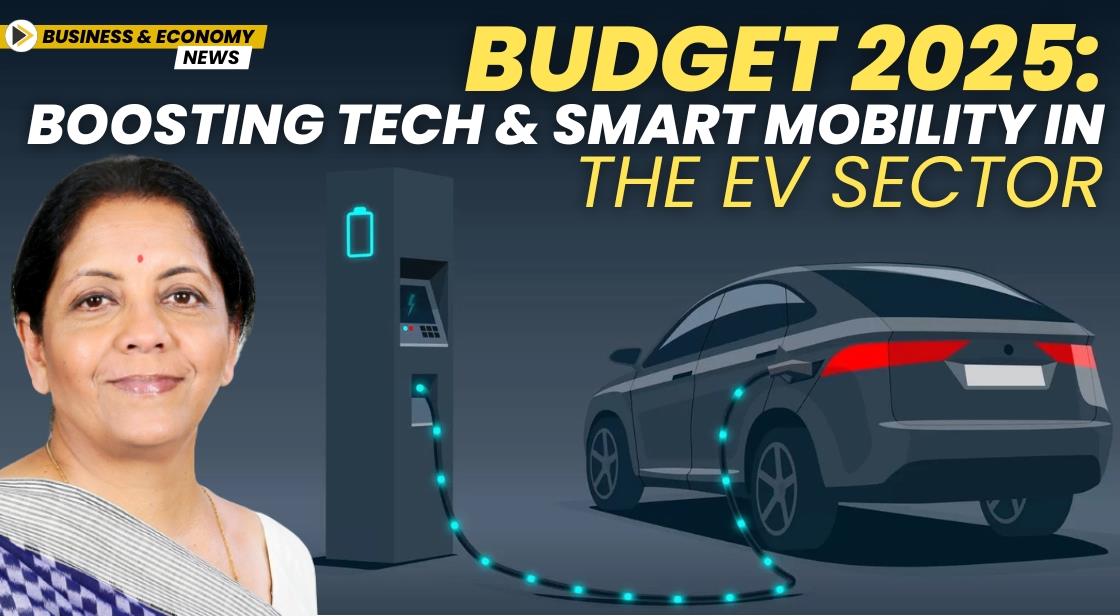Budget 2025: Boosting Tech and Smart Mobility in the EV Sector

News Synopsis
As the unveiling of Budget 2025 approaches, the Indian electric vehicle (EV) sector anticipates several measures aimed at accelerating adoption and making EVs more affordable and accessible for consumers. With India committed to reducing carbon emissions by one billion tonnes by 2030, stakeholders in the EV industry are optimistic about receiving the necessary policy support to achieve this ambitious target.
Driving EV Adoption in Tier II Cities
Akshit Bansal, Founder and CEO of Statiq, emphasized the importance of expanding EV adoption in Tier II cities. According to Bansal, the availability of robust infrastructure, particularly widespread EV charging stations, is critical for instilling consumer confidence.
“Establishing a reliable charging network will encourage greater adoption of electric vehicles, especially in underserved regions. This transition will facilitate broader EV penetration across the country,” he noted.
Bansal also highlighted the need for converting heavy commercial vehicles to eco-friendly alternatives to address urban pollution levels, which continue to rise in major cities.
Lowering GST Rates to Boost EV Sales
Industry leaders such as Ishaan Parwanda, Director of Trinity Touch, suggested lowering the Goods and Services Tax (GST) on lithium-ion batteries as a significant step toward making EVs more affordable.
“Reducing the GST on EV batteries, upgrading the infrastructure status of charging stations, and introducing performance-linked incentives for manufacturing are crucial steps. These measures would help make the EV market more accessible to a broader audience and support India’s transition to sustainable mobility,” Parwanda explained.
Promoting Domestic Production for Sustainable Growth
Parwanda further advocated for increasing domestic production of critical EV components. He emphasized the importance of reducing dependency on imports by promoting Atmanirbhar Bharat initiatives, such as special Production Linked Incentives (PLI) for EV manufacturing.
“Encouraging domestic production will not only boost local manufacturing but also reduce the overall cost of EVs for Indian consumers. These measures would position India as a global leader in sustainable mobility while supporting the growth of the EV sector,” he added.
Leveraging Technology for an Optimized EV Ecosystem
Experts believe that advancements in technology will be pivotal in driving the growth of the EV ecosystem. Raghav Arora, Co-Founder and CTO of Statiq, underlined the role of cutting-edge technologies such as artificial intelligence (AI) and the Internet of Things (IoT) in enhancing EV infrastructure.
“Innovations in battery technology, charging networks, and smart mobility solutions are essential for overcoming current challenges and improving the EV experience. AI and IoT can be leveraged to optimise charging networks and improve battery efficiency,” Arora said.
Arora also urged the government to prioritize investments in technology-driven initiatives, particularly those supporting startups and established players in the EV space. “This focus on technological advancements will help India emerge as a global leader in sustainable mobility,” he added.
The Road Ahead for Budget 2025 and the EV Sector
As the Budget 2025 announcement draws closer, the EV industry is hopeful for targeted policies and investments that address key challenges in the sector. From lowering GST rates and promoting domestic manufacturing to leveraging advanced technologies, these measures have the potential to reshape the EV landscape in India.
With the government’s focus on sustainability and reducing carbon emissions, the budget is expected to play a transformative role in accelerating the adoption of electric vehicles and establishing India as a global hub for EV innovation.
You May Like









